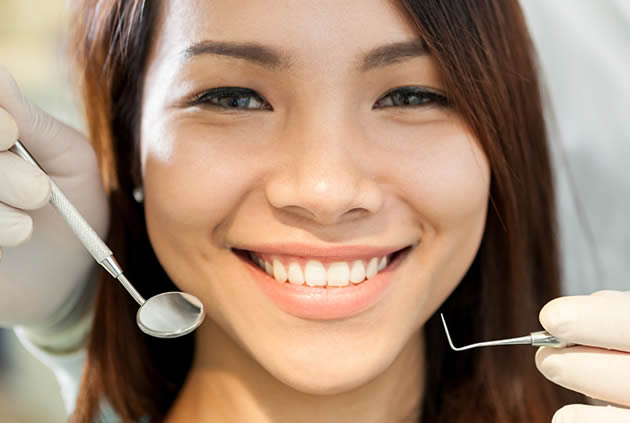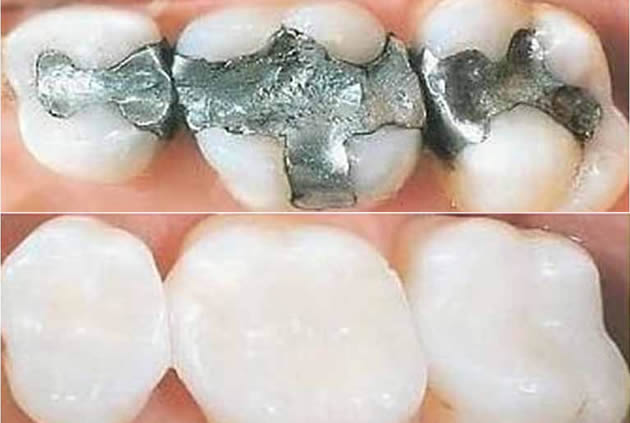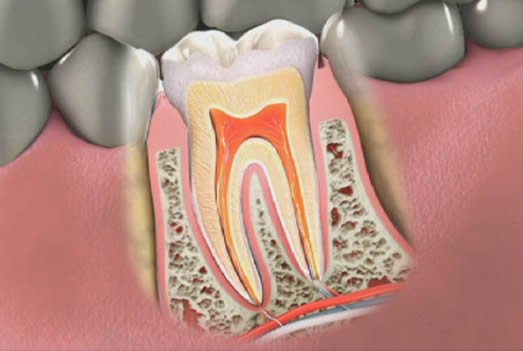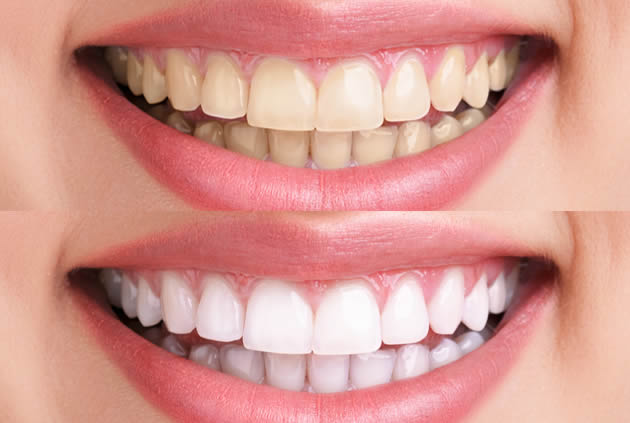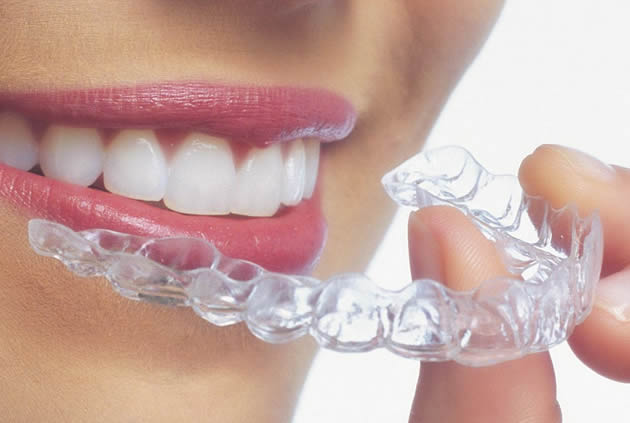
Most people have friends or family who have had to deal with the disease cancer in some area of the body. Cancer can be described as uncontrollable cell growth that invades and damages surrounding tissue. Oral cancer often shows up as a persistent sore or growth in the mouth, but also includes cancers of the tongue, lips, cheeks, palate, throat, and sinuses. Like most cancers, it can be life threatening without early detection and treatment.
Symptoms
Common symptoms of oral cancer include:
- Swelling, lumps, or rough spots on your lips, gums, or other mouth areas
- White or red patches in your mouth
- Numbness or tenderness in your mouth, neck, or face
- Unexplained bleeding in your mouth
- Sore throat or feeling that something is stuck in your throat
- Persistent sores in the mouth, neck or face that bleed easily and do not heal in two weeks
- Hoarseness or chronic sore throat
- Difficulty swallowing, chewing, talking, or moving your jaw or tongue
- Earache
- Substantial weight loss
Risk factors
Men are at twice as high risk for oral cancer than women, and men over 50 are at greatest risk. The biggest risk factors include any kind of smoking or using smokeless tobacco, excessive alcohol consumption, excessive sun exposure, or family history of cancer. However, it’s important to know that more than 25 percent of oral cancers occur in people who do not smoke or only drink alcohol occasionally.
Diagnosis
Routine dental checkups include an examination for signs of oral cancer. A biopsy may be performed on any suspicious areas. Regular checkups are important so that tests can identify oral cancer early, before it can spread or progress.
Treatment
Oral cancer is often treated similarly to other types of cancers. It may include surgery to remove the growth, followed by radiation or chemotherapy to destroy remaining cancer cells.
If you need a dentist in Baltimore contact us today

Chances are you would be disgusted at the thought of leaving your eating utensils on your bathroom counter exposed to germs, and never washing them but continuing to eat with them. This is essentially what you’re doing if you leave your toothbrush sitting out, and never sanitize or change it. Let’s talk about how to keep your toothbrush from being a germ-infested threat to your health.
Your toothbrush can be contaminated by bacteria, saliva, blood, and food particles with each use. Even after you rinse it with water, your toothbrush may appear clean but germs linger on the bristles. Some of the sources of bacteria on your toothbrush include:
- Your mouth, which transfers germs to your toothbrush during use.
- The environment, because bathrooms are often the most contaminated room in your house.
- The packaging, since toothbrushes aren’t sold in sterile packages they can arrive with germs already on them.
Here are some tips to guard your toothbrush from germs:
- Before and after you brush your teeth, wash your hands to get rid of germs.
- Rinse your toothbrush well with water, and then allow it to air dry.
- Store the toothbrush upright so that water can drain from it while drying.
- Consider storing your toothbrush in a dry area outside of the bathroom, away from humidity and toilet spray
- Replace your toothbrush every 3-4 months, or more often if you notice worn bristles.
- Do not share your toothbrush with anyone.
- Do not soak your toothbrush in disinfectant or mouthwash, which can lead to cross contamination
- Do not bother microwaving your toothbrush or running it in the dishwasher, because these tactics may damage your brush.
We treat patients from Baltimore and the surrounding area

You’ve probably seen what coffee can do to a cup. Those brown stains that you see left on your cup are also sticking to your teeth. Coffee is especially hard on your teeth due to an ingredient called tannic acid, which gets into the grooves and pits of your tooth enamel and can stain it brown. Certainly the ideal way to stop the staining is to quit drinking the java, but that’s an unrealistic solution for many people. So what else can you do to save your pearly whites?
Drink smart
First, try and reduce the amount of coffee you drink. If you drink a lot of coffee, even cutting out one cup a day can lessen the dark stains on your teeth. Another suggestion is to drink your coffee in one or two sittings instead of sipping it all day long. Also, try lowering the temperature of your coffee. The hotter the coffee is, the more easily it can stain your teeth. Just letting it cool a couple of degrees can make a difference to your teeth.
Rinse
After every cup of coffee you drink, rinse your mouth with room-temperature water. This will remove some of the staining elements before they have a chance to set in. The water also helps neutralize acids in your mouth, which will lower the bacteria in your mouth that can lead to cavities.
Use a straw
If you like iced coffee or tea, drink it with a straw so that the dark beverage doesn’t directly contact your front lower and upper teeth. Using a straw reduces your teeth’s exposure to liquids that can stain.
Whiten your teeth
Ask your dentist about professional whitening methods, as well as products you can try at home. There are even some brands of whitening toothpaste made especially for coffee drinkers.
Practice good hygiene
Brush your teeth several times a day, especially after drinking coffee. Flossing daily also helps prevent stains, and is important if you add sugar or cream to your cup of joe. See your dentist twice a year for professional cleanings, which can do a better job of removing stains and restoring your smile.
We treat patients from Baltimore and the surrounding area

Most of the time, the idea of dentures brings to mind elderly people who are missing a mouthful of teeth. The truth is that dentures are not just for old folks, but for people of all ages who have lost teeth for some reason. Gum disease, tooth decay, and trauma from an accident are all common reasons for tooth loss. There is no need to suffer through life with gaps in your smile, when you can opt for dentures to restore both appearance and function.
The main reasons that many people consider getting dentures include:
- Eating – your teeth help you to chew and eat food. Dentures serve the same purpose, allowing you to eat a normal diet without having to stick only to soft foods or liquids.
- Speaking – when the gaps in your smile have been filled, your ability to speak more clearly and easily is improved.
- Smiling – replacing missing teeth gives you back your self-confidence to smile and laugh again. You will be proud of your new smile and be willing to display it more often. Also, your cheeks will have a fuller look and your appearance may look younger.
When you get dentures, expect that it may take some time to get used to them. They may feel strange at first, and you should be patient while you learn to talk and eat with them. Time will help you adjust to the dentures, but if discomfort lingers you should visit your dentist to make sure the fit is correct and no adjustments are necessary.
Our dental office is located in Baltimore

Does your mouth feel like it’s full of cotton? Or does it remind you of the Sahara Desert? Having an overly dry mouth can result from a variety of dental and medical issues. For example, one common culprit of dry mouth symptoms is related to medications. The best long-term solution is to consult your dentist or physician to determine the root cause of your dry mouth, and to get treatment to solve the problem. Sometimes all that is needed is to change to a different medication, and your dry mouth will disappear. However, here are some things you can try to temporarily relieve your dry mouth until you are able to determine what is causing it.
- Sip water often.
- Limit caffeine consumption, which can dry out your mouth even more.
- Chew sugarless gum or suck on sugarless hard candy.
- Use an over-the-counter saliva substitute, such as Biotene.
- Do not use tobacco products of any kind.
- Do not use mouthwashes containing alcohol, because it can be drying.
- Avoid over-the-counter antihistamines and decongestants, which can worsen your dryness symptoms.
- Add moisture to the air using a humidifier.
- Try to breathe through your nose instead of your mouth.
If you do experience the symptoms of dry mouth, it’s especially important to protect your oral health. Make sure you brush your teeth with toothpaste containing fluoride, and ask your dentist if prescription fluoride toothpaste would benefit you. Use a fluoride mouth rinse before bed to add an extra layer of protection for your teeth. Limit the amount of sugary foods or items high in acids, as both of these types of foods increase your risk of tooth decay. Following these tips for relieving dry mouth symptoms can make it more comfortable for you to eat, swallow, and talk.
Schedule your appointment at our Baltimore dental office
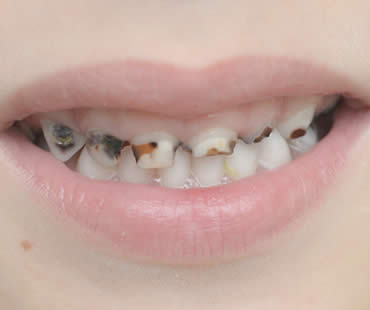
Once you’re an adult, you don’t have to worry about cavities anymore. Right? Wrong! It’s true that you should have mastered oral hygiene techniques, but there are different factors that can contribute to cavities that weren’t a big issue during childhood. What are some of the things that put you at risk for cavities once you’ve reached adulthood, and what can you do about them?
Diet
Often your diet is worse as an adult without even realizing it, and what you eat and drink directly affects your teeth and gums. Sugar is the biggest offender and all types of sugar counts, not just the obvious candy or sodas. Limit your consumption of juices, milk, crackers, sweetened coffee, fruits, and vitamin or energy drinks.
Grazing
Many people tend to “graze” on foods and drinks all day long. If you snack frequently, you’re giving bacteria a constant supply of sugars to mix with and damage your mouth. Even though it’s tempting to sip on coffee or soda all morning, it’s better to drink it in one sitting. Also consider using a straw to avoid your teeth completely.
Receding gums
If your gums pull away from your teeth, your tooth roots can be exposed to plaque. Older patients with gingivitis, or gum disease, are more likely to form cavities. If the roots of your teeth are uncovered, you are more susceptible to plaque buildup and tooth decay.
Previous fillings
Fillings you received earlier in life can contribute to adult cavities. The filling may weaken with time, allowing bacteria into any cracks. Your dentist will check existing fillings for wear and replace them if needed.
Medical conditions
People with lower saliva flow due to various illnesses are at higher risk of cavities. Cancer patients who have undergone chemotherapy or radiation are at more risk, as are smokers. People with limited manual dexterity may be unable to clean their teeth sufficiently.
Ways to decrease your risk
Brush with a fluoride toothpaste after meals, floss daily, and rinse with a fluoride mouthwash. See your dentist twice a year, and also inquire about fluoride treatments.
We treat patients from Baltimore and the surrounding area












